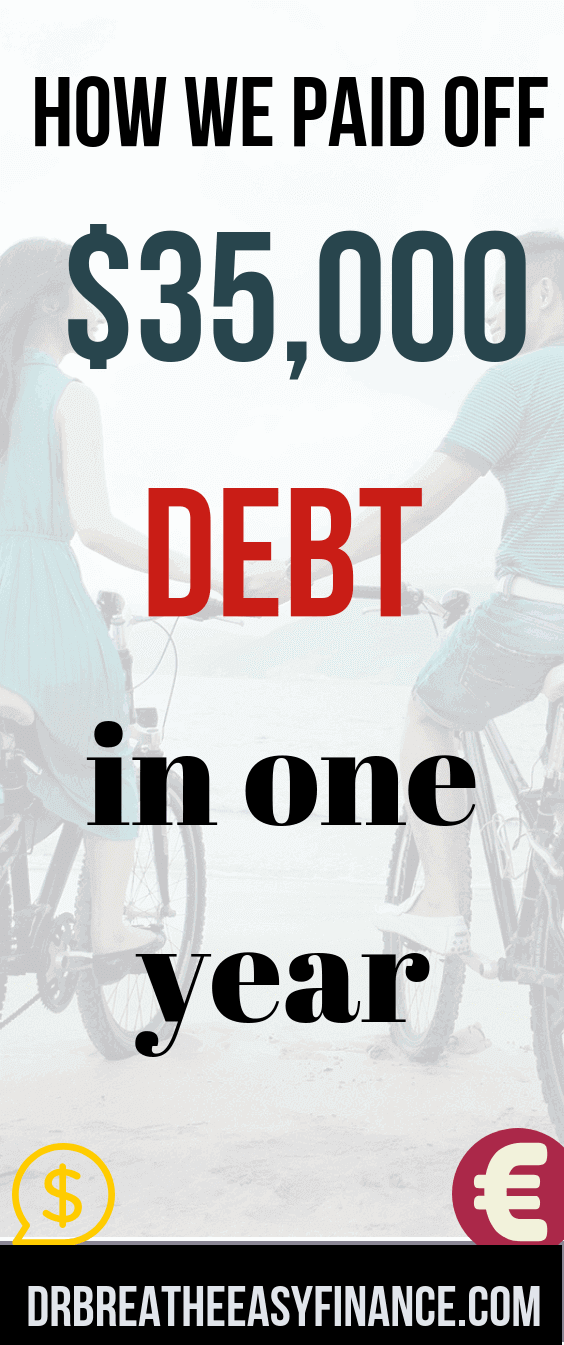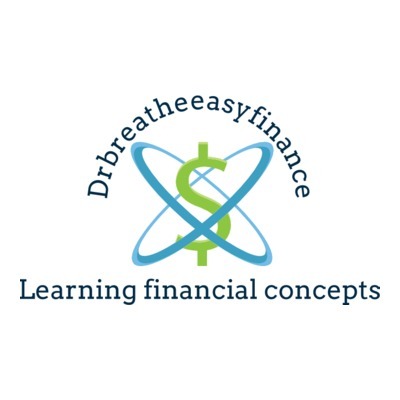My name is Jude and I blog about personal finance at African Style FI. I talk about everything finance from paying off debt to investing.
The aim of my blog is to share my journey to financial independence and inspire others that it is possible.
I am an immigrant from Cameroon in West Africa and I came from a community that seems to believe the only way to survive in the United States is to have debt.
I used to believe that as well until I found the financial independence community and it was like I was born again.
Since then, my wife and I have paid over 35K in student loan and consumer debt.
We have built an emergency fund that covers at least 4 months of expenses and we are now currently saving to buy our first house.
Paying off our debt has given us the freedom to pursue our goals.
In fact, we were able to pull the trigger on our move to Texas without me having a job because we knew we had an emergency fund that could support us till I find something.
Getting to financial independence can provide even more freedom to live a stress-free financial life and take more risk.
If there is one take away from this, it is – paying off debt is possible. It is possible to survive in America without debt.
Now to the interview. Put on your seatbelt because this one is hot.

Table of Contents
What do you do for a living?
My background is in chemical engineering and I worked as a process engineer for the past 2 years before I quit because my wife got an opportunity we could not pass up in Texas.
Before I left, I was able to convince my boss to keep me on as a contractor and do some data analysis work remotely.
That is what I do currently, but it is short term, so I continue to search for a new opportunity in our new home state.
Do you have a degree and are you currently using your degree?
I have a bachelors and master’s degree in chemical engineering and currently use that degree as I find new opportunities in the Dallas area.
How long have you worked in your field and what is your current salary range? Only if you want to, however, it is better to give our readers some perspective. If they are low-income earner vs high-income earner, the strategies might differ.
I graduated with my bachelor’s degree in 2012. However, I didn’t get my first full-time job using my degree. It wasn’t till I got my master’s that I got a job that used my degree
I started out with a contractor job that paid me $30/hr. Six months later, I for a permanent job as the process engineer that paid me 73K.
I have been working in my field for 2 years, however, since this is about my debt paid off, I must include the income of my wife as well because everything is combined.
My wife graduated as a chemical engineer as well in 2012, and she later got a master’s in business analytics and project management in 2016 and now works as a procurement manager.
She has been doing that now for the past 2 years and makes over 100K.
What major debt have you paid off that you feel is a hurrah moment for you?
Paying off 26K in student loans and 8K in credit card debt was definitely the big hurrah moment.

Describe to us in detail, the strategies you used to pay off that/those debt(s)
Like most people, we graduated from college with student loans.
We had racked up over 35K and had been paying it slowly over the years.
I actually stopped when I went back to college. We started focusing on paying it down when I found the financial independent world in early 2017.
At that point, we had 26K in student loans and $8000 in credit card debt.
The biggest strategy was setting up a budget and doing the debt snowball.
For the credit card debt, I did a 0% percent balance transfer to a Chase Slate credit card and paid over before the 12-month introductory 0% interest rate period was over.
For the student loans, it was a little more strategic. My own student loans were about 11K, but it was broken down into several accounts that ranged from about $700 to about $3000.
My wife’s loans were about 15K and were broken down to just about 4 accounts that were at least $4000 each.
Therefore, using the principles of the debt snowball, we started with mine which had smaller amounts in the account.
That was huge because right away, we got some big wins that motivate us.
I will advice that if you have several accounts in your student loan, do not consolidate them. Just paying off one account and seeing the balance at zero was enough to boost our confidence that we could payoff the rest of our debt.
We had $500 dedicated to paying student loans each month but that was rarely just the amount we paid.
At the end of each month, the money that was leftover from the other categories were sent directly to the loans.
Another helpful strategy was paying the loans twice each month.
Since student loan accrues interest daily, paying twice in a month, sometimes 3 times because of the extra money from the previous month, we had more money going to the principal.
I would remiss if I don’t mention that all the tax return we receive that year plus my wife’s bonus from work went directly to the loans.
Those where a huge help in cutting the timeline to payoff the loans.
The big hurrah finally came on November 30th, 2017 when we made the last payment on the student loans.
The credit card was paid off by this time. We were determined to live debt-free.
I wrote a post about my debt payoff story.
Do you have any other debt left? What kind of debt? What are your goals to pay off this debt?
We don’t really have any debt. During our move to Texas, we put the expenses on a credit card.
However, it was one with no interest for the first 15 months. Our budget is set to pay it off before the 15-month introductory period is over, so I really don’t consider it debt since I will pay no interest on it.
Do you budget? Why or why not? Which method do you use?
Yes, I absolutely budget. It has been vital in our financial journey and as mentioned earlier, one of the biggest aids in helping us get out of debt.
I am naturally frugal so, I don’t particularly need a budget, but my wife is not as frugal as I am.
Admittedly, she is a lot better since we got on this journey and knows the advantages of being smart about our money.
However, we still keep a budget so we can track our expenses and see where our money is going.
We use zero-based budgeting to create our budget. That is a method where you assign all the money coming into something, whether is it an expense or savings.
All the inputs on budget entries must be equal to the income coming in that month.
Here is our free budget template for you to get started.
What percentage of your monthly income do you save?
Currently, we save somewhere around 30% of our monthly income. This is based on after-tax dollars.
Do you have any passive income sources?
We do not have any passive income sources, but we plan to get into real estate investing.
Hopefully, we can buy some properties and rent out and get some passive income from that.
Do you rent or own your own home/condo/apartment?
We currently rent a house, but we are currently saving to buy a house in the near future.
It is one of our big financial goals and we expect to pull the trigger sometime in 2020.
I understand there is a debate on buying vs renting and I am don’t feel strongly about any particular side.
I believe you need to be smart and do the math. I think the real debate is if you consider your house to be an investment.
For that, I have a strong opinion. I don’t think buying a house is a smart investment.
I do not look at my goal of buying a house as an investment.
If at some point in the future, the value has grown enough that I can make a profit if I sell it, great.
But that is not my goal. I want a place where can I set roots and plan to live there for a long time.
I plan to get into real estate investing in the future, that is where I will look at the houses I buy as an investment.
Which side of the argument are you in terms of paying off mortgage vs investing?
I think it can be a balance of both. I don’t like being in debt, so I am a little more biased toward paying off the mortgage, but I think it depends.
If I had enough to max out both our 401Ks, HSA, and Roth IRAs then had some money leftover, I will definitely send that extra to paying off the mortgage.
When I do get a house, I plan on paying it as fast as possible but not at the expense of investing.
Maxing out at the very least our pretax accounts (i.e. 401Ks and HSA) is a huge financial goal for us as well.
There you go!! Another awesome get out of debt series. Please share and comment below.
If you are still in debt, here is a dope debt tracker spreadsheet that can help you get out of debt faster. I really wish I had this when we were paying off our debt, it would have made our lives so much easier.
Here is the link to binge on all the get out of debt series
Other posts in the series include
Xrayvsn crawled out of $600,000 debt and the worst divorce in history and still managed to reach financial freedom.
From one Geek To Another became debt free at a tender age of 27.
Money Saved Is Money Earned is the master in stretching that dollar. Low income did not stop him from getting out of debt.
How We Paid Off $340,000 Mortgage In 3 Years By Saving 86.5% Of Our Income (By HisHerMoneyGuide)
Wealthy Doc became financially independent in 17 years after starting his real job.
Marc from Vital Dollar paid off his 30 years mortgage in just 4 years.
Millionaire Mob, a guru investor showed us how to get out of debt.
The frugal fellow lived with his parents to pay off debt and he is not ashamed of it
Check out some of the tricks we used to pay off over $200,000 student loan debt by 6 months out of training.
5 strategies to pay off $55,000 debt In 4.5 Years by Spills Spot
I am a pulmonary and critical care doctor by day and personal finance blogger/debt slaying ninja by night.
After paying off close to $300,000 in student loan debt in less than 6 months into my real job, I started on a mission to help others achieve the same. There is no magic to this than to strap up and get it done. Some of the ways we achieved this include side hustle, budgeting, great negotiation skills, and geographical arbitrage.
When I was growing up, common knowledge in Nigeria is that there is one thing you cannot trust anyone else with, and you guessed it – your money.
Being frugal came easily to me based on my background. However, the concept of building wealth did not solidify in my mind until when I finished medical school. I wish I knew what I know now when I was 14. Still, I don’t know enough and I am constantly learning to improve my knowledge.
My goal is to reduce financial illiteracy among young professionals. I am catering to the beginners – babies and toddlers in financial literacy.








Avneet Singh says
Congratulations Man, I came here from Pinterest when I saw your pin:)
Adebayo says
Thanks for stopping by. African Style FI is awesome